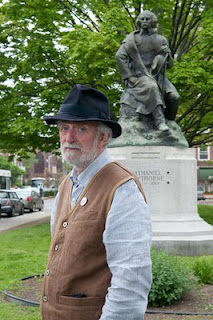In late May, the New York Times reviewed former . In the article, writer Dana Jennings describes Sexton as “another modern monk seeking refuge in Asian poems.” Honoring his years in Alaska, his life in Maine, where he spends every other summer, and his interest in Chinese poetry, the Times says Sexton is” an atavistic avatar of how to look hard yet write simply.”
You were Alaska
become a poet laureate? What are the duties?
The poet laureate was recommended to the State Arts Council by the former laureates and approved by the legislature until 2000, when it was changed to state writer. I was the last laureate chosen in the traditional way. .. There were no designated duties when I was poet laureate.
So last spring, you find out the New York Times is mentioning your work. How exciting! What was that day like?
I found out about the New York Times review when I was at the Massachusetts Poetry Festival. I was chosen to open the Festival, so I was already walking on air when I found out about the review.
Which poem in this book are you most proud of? Can you give us a few lines of it, and explain what inspired it?
I’m most proud of “Snow.” I feel it’s a perfect fusion of form and content. All of the elements work together. To me, the rhyme scheme and sound patterns are flawless. The Hudson Review used “Snow” for its Christmas gift to subscribers last year.
Snow
Even though it’s still Fall, a dense-wind
driven snow has been falling since dawn.
It rises and falls like the wings of a swan,
an image from a fairy tale that begins:
Once upon, but I’m too old for that now,
so I watch it falling beyond my window.
When it slows, I go out to see how deep
it is. It’s as light as down, as light as sleep.
So much of your writing is about Alaskan wildlife. Imagine that you had remained in Massachusetts Alaska
If I had stayed in Massachusetts Alaska
What advice do you have for the aspiring poets of tomorrow, who are often told that there’s no market for or money in poetry?
I was very fortunate when the University of Alaska
Tom Sexton’s collection of poems set in his hometown of Lowell, Massachusetts


Wonderful interview, Liz, thank you. And kudos to Tom Sexton, such a very fine poet.